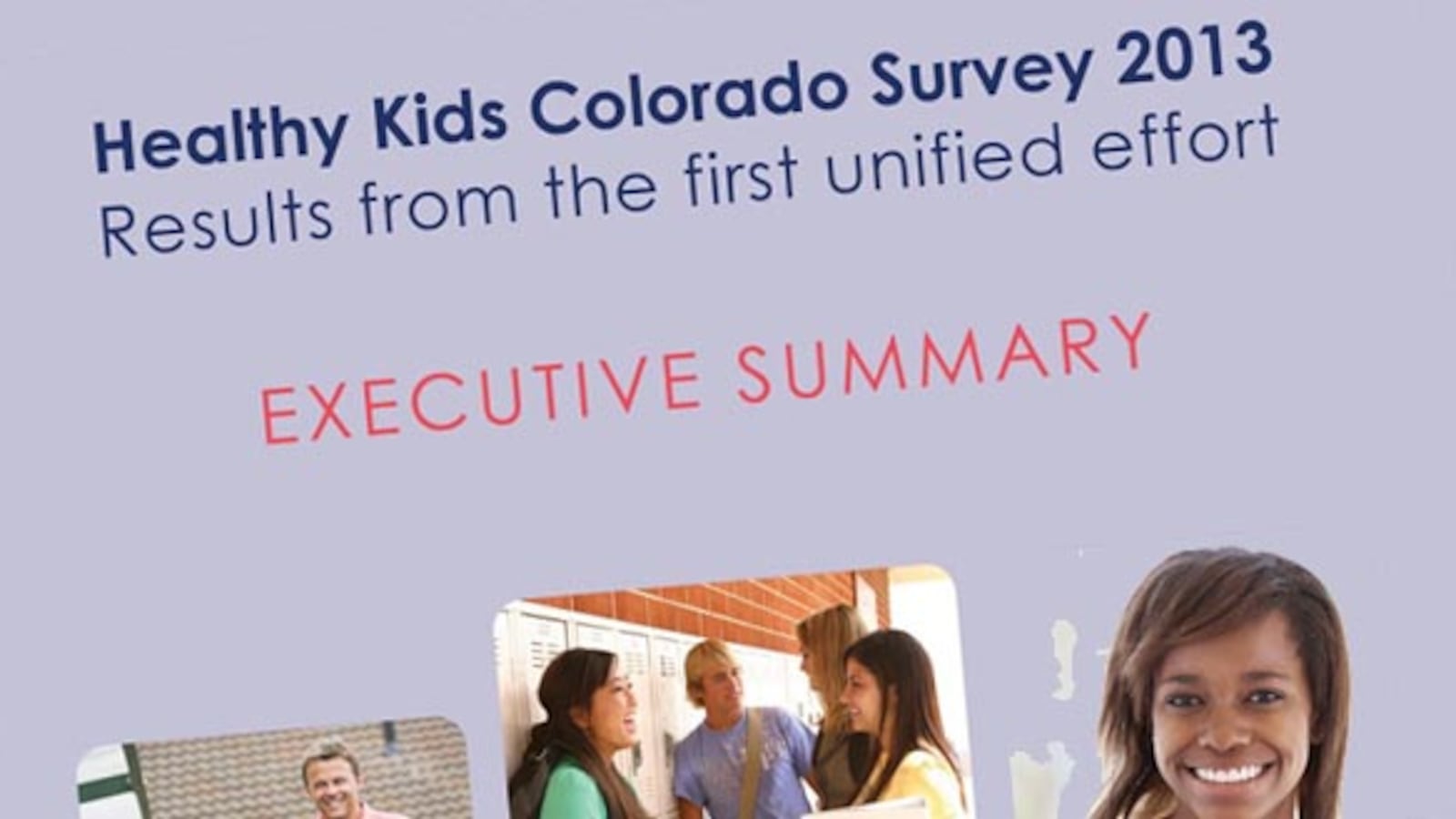Parents have to approve their children’s participation in the Healthy Kids Colorado Survey, and schools can’t merely offer parents the opportunity to opt out, an assistant attorney general told the State Board of Education Friday.
“I conclude that prior written parental consent is required before any Colorado public school students can be administered” the survey, Senior Assistant Attorney General Tony Dyl wrote in a memo to the board.
The survey has been criticized by some parents who are offended by questions on student drug use, sexual practices, drinking and other sensitive issues.
Board members started asking questions about the survey at their Feb. 19 meeting. They asked Dyl to write the memo, which he presented to them at Friday’s session.
“Merely affording parents notice and an opportunity to ‘opt-out’ of the [survey] is not sufficient to meet the requirements of the law,” Dyl wrote. “Read together, these two statutes are not ambiguous.”
Dyl concluded that consent is valid only if a school district has given written notice of the survey, made a copy of the survey available for viewing, and given parents two weeks to respond.
The way most schools currently administer the survey appears to be at odds with Dyl’s opinion. Some 92 percent of schools use a “passive consent” letter, which allows parents to opt out if they choose, according to Sarah Nickels, the Healthy Kids Colorado Survey lead at the Colorado Department of Public Health and Environment. Another 8 percent of schools use “active consent” letters, which require a parent signature for any student who participates in the survey.
The Healthy Kids Colorado Survey is given every other year to students in randomly selected schools that agree to participate. More than 220 schools and 40,000 youth took the 2013 survey. Learn more here, and read the 99 questions on a past survey here.
Dyl cited federal and state law that say that parents must consent to any survey required of students that touches on certain topics. A recent version of the survey specifies that students’ participation is voluntary.
Dyl’s memo is what’s known in state government as an “informal opinion,” meaning it represents the legal opinion of the lawyer who wrote it and is not a formal ruling of the attorney general. Such formal opinions have the force of law. (See full memo below.)
The board considered passing a motion directing education Commissioner Robert Hammond to distribute the memo to school districts and provide advice on the issue. But members decided to delay any action until the next regular meeting on March 11-12.
Angelika Schroeder, a Democrat from Boulder, said it’s important that the board be able to hear public testimony on the issue.
While no action was taken, some board members made their views on the issue clear.
“The whole thing just seems really poorly handled. … Why is it so hidden?” said board member Deb Scheffel, a Republican from Douglas County. “I feel like I’m flat footed; I don’t have any information” when questioned by parents.
Schroeder questioned whether parents are in the dark about the survey. “We’re generalizing that parents were the last to know, and that’s not true.” Schroeder is a former Boulder Valley school board member and said, “Parents certainly in my school district were notified.”
Pam Mazanec, a Republican from Douglas County, said the survey “strikes me as exploitive of children. … I think it’s inappropriate. It’s repulsive to me.”
Both Scheffel and Mazanec said they believe the survey has become more intrusive in recent years.
Rebecca Holmes, a Department of Education associate commissioner, said the origins of the survey go back to 1991 and while questions have been added over time, sensitive questions “have been asked for most of the 24 years of the survey.”
The survey is the Colorado version of a federal Centers for Disease Control and Prevention survey and is supervised by the Colorado Department of Public Health and Environment, Department of Human Services and CDE. The public health school at the University of Colorado Denver does the survey work.
Questions about the survey have come up frequently in recent committee hearings on parent rights and student data privacy measures being considered in the legislature.
There’s clearly some misinformation circulating on the issue.
On Thursday, State Board members took questions from local board members during a Colorado Association of School Boards conference.
One member of the audience said parents had told her that the health survey was given as part of the PARCC language arts and math tests.
“It’s not part of the PARCC test,” SBE member Steve Durham told the questioner.

